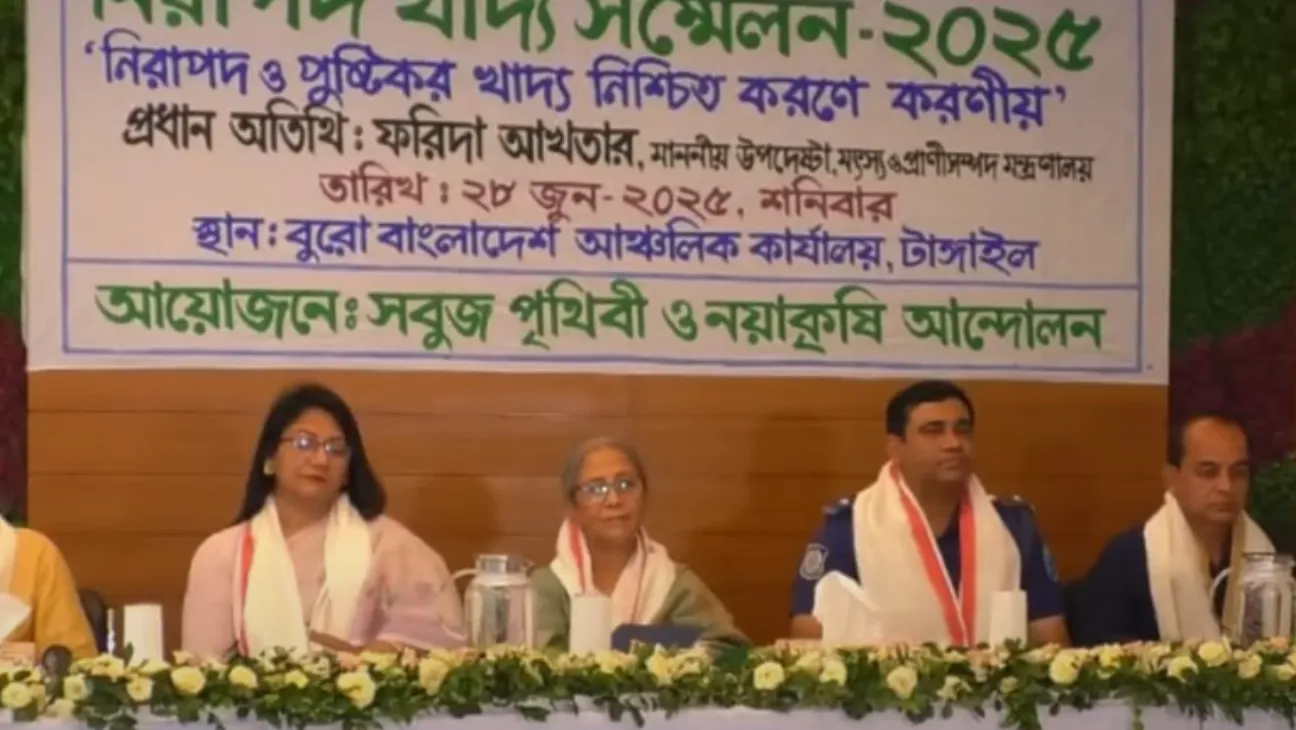Farida Akhter, adviser to the Ministry of Fisheries and Livestock, issued a sharp warning on Wednesday about the widespread use of pesticides in Bangladesh’s farming sector, calling the chemicals toxic and threatening public health.
Speaking at a conference organized by Sabuj Prithibi and the Naya Krishi Andolon in Tangail, she didn’t mince words.
“People see pesticide ads and think they’re good,” she said. “But these are poisons. And if necessary, I will take to the streets to stop this.”
Food, Fish, and Grasslands Under Threat
In Tangail, a group of environmental activists and government officials sat down to talk about a growing fear: the amount of chemicals making their way into the food we eat.
Akhter drove the point home, warning that it’s no longer just a problem for crop farms. He said these same pesticides are now being found in the country’s fisheries and livestock sectors, too.
“Mangoes, vegetables, even fish are being treated with these substances. Grass is being sprayed to kill weeds, making it unsafe for cows and goats to graze,” she said.
According to Akhter, such practices are quietly damaging the country’s food chain. “We must break free from this toxic environment,” she added.
Questions Over Policy and Practice
“Isn’t pesticide poison?” she asked. “So how can we justify using poison to produce food?”
The room remained mostly quiet as Akhter called for a clear policy shift. She didn’t only ask for reform but promised action. “If I have to protest on the streets to stop pesticides, I will,” she said.
Her remarks come as local farming practices continue to rely heavily on chemical solutions. Though such products are legal and widely available, growing concerns have emerged from both health experts and ecological researchers in recent years.
Presence of Officials and Activists
So you have a room full of officials and activists, all on the same page, nodding along. But then you notice who’s missing: the pesticide companies themselves, and anyone officially speaking for the Ministry of Agriculture.
Their silence made the real point of the day stand out even more.
With activists like Farida Akhter, you could tell—this isn’t just a policy debate anymore. It’s personal. And she’s past the point of just speaking out—she’s ready to act.









